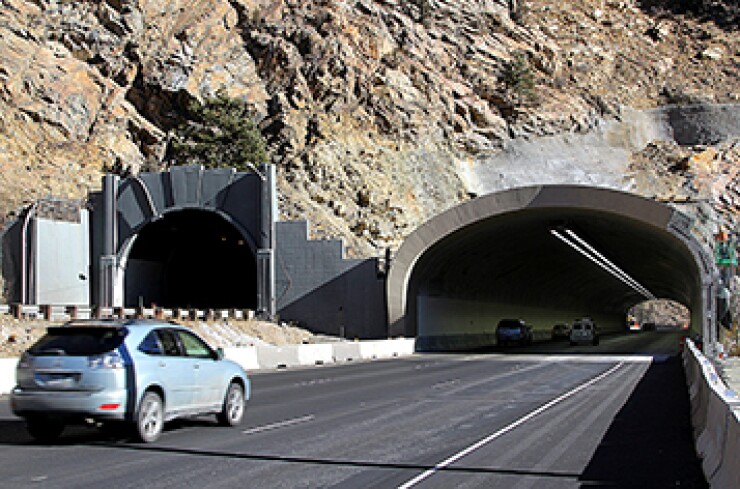
DALLAS -- Colorado Gov. John Hickenlooper has proposed a two-year state budget that would cut transportation expenditures from the general fund by 41% to help close a $500 million revenue gap.
The $28.5 billion executive budget sent by the governor to lawmakers on Nov. 1 would reduce statutory transfers from the general fund to roads and highways by a total of $109 million, with a $79 million reduction in fiscal 2017 and $30.3 million in fiscal 2018.
"It's one of those budgets where I'm certainly going to be the least popular person in the state with an awful lot of people," Hickenlooper told reporters.
A measure adopted by the legislature in 2009 created a formula to shift between $100 million and $200 million per year from the general fund to the Highway Users Trust Fund unless lawmakers object.
The state transportation fund had been slated to receive transfers of approximately $158 million in fiscal 2017, which began June 1, and $109 million in fiscal 2018.
Hickenlooper's proposal would move half of the scheduled 2017 transfer into the 2018 budget and eliminate all of the potential 2018 transfer.
The $109 million cut in spending could delay some highway projects, said Amy Ford, a spokeswoman for the Colorado Department of Transportation.
"This is a challenging budget situation right now and that does impact transportation as well," she said. "Everyone needs to do their share."
The state has about a $1 billion gap per year between transportation needs and the available revenue, Ford said.
"There is a significant amount of need and a lot of congestion," she said. "We have programs on the books to address some of them but without the funds to make improvements, people are still going to have to sit in traffic."
CDOT is considering a $200 million project to widen a traffic-clogged stretch of Interstate 25 between Denver and Colorado Springs but there is no money available to do more than study it, she said.
"It's clearly a pressing need," Ford said. "Budgets like this will delay improvement there for a while."
The $500 million of cuts in transportation, education, and health care are needed to resolve the gap between $926 million of required additional spending due to constitutional or legal mandates and $426 million of new revenue that is available, Hickenlooper said.
"Colorado's economy continues to grow, though more slowly than in recent years," he said in his budget message. "Within the confines of the competing requirements of the state constitution and formulas in current law, this budget prioritizes the fiscal priorities of the state with a modest 3.3% increase."
The primary reasons for the slow growth in state revenues include declines in corporate profits and only sluggish increases in income and sales tax collections, said Henry Sobanet, director of the state planning and budgeting office.
"There has been a marked slowdown in overall state general fund tax revenue growth and recent forecasts reflect dampened expectations about the future," Sobanet said.
Revenue sources for CDOT's $1.4 billion annual budget in fiscal 2016 included $522 million from the state's gasoline and diesel taxes and $542 million of federal funds.
Colorado will receive a total $2.8 billion of federal highway and transit funding through fiscal 2020 from the Fixing America's Surface Transportation Act, an average of $566.4 million per year.
Projected state revenues are expected to cover less than half of the state's transportation needs over the next 25 years, with a $9 billion revenue shortfall over the next 10 years, CDOT said earlier this year.
Colorado's gasoline tax has been set at 22 cents per gallon since 1992.





